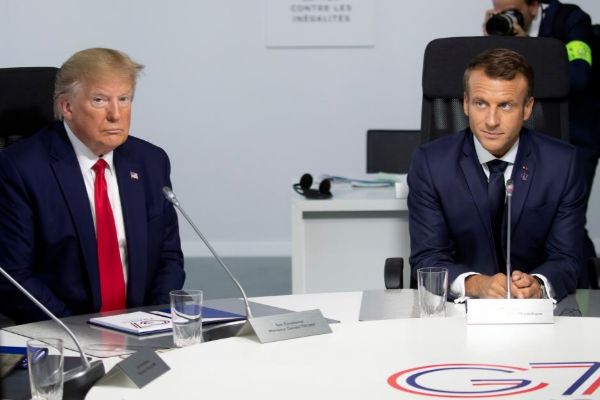France and the United States are close to closing an agreement on the so-called Google rate , the rate that France applies to digital giants, said US President Donald Trump during the Group of Seven (G7) summit in Biarritz, in the Basque-French coast.
"We are close. They want an agreement. We will see if we can close it ," Trump told the press, who before the G7 summit had threatened to respond with tariffs on French wine if France did not give up this rate, known in France as the rate GAFA (acronym for US giants Google, Apple, Facebook and Amazon).
French Finance Minister Bruno Le Maire, and US Treasury Secretary Steven Mnuchin, came to an agreement, which will present Monday the presidents Emmanuel Macron and Trump in the framework of the G7 summit.
Le Maire and Mnuchin were negotiating this weekend at the home of the French minister in the Basque Country and on Sunday at a dinner in Biarritz.
How it will work
If the agreement is closed, France would return to the digital giants to whom that tax already applies the difference between the amount charged and what is set by the new international tax system prepared by the Organization for Economic Cooperation and Development (OECD). The objective is to reach an agreement in the OECD by the end of 2020.
In the absence of a European consensus and a global agreement, the French Government decided to act on its own against the Internet giants, waiting for the OECD countries to reach an agreement on an international rate.
Paris taxes 3% on all digital companies with annual revenues of 750 million euros worldwide and whose activity in France reaches 25 million euros. The French Google rate, which was approved in July and applied retroactively from January 1, 2019, covers three activities: online advertising, the sale of personal data and intermediation.
With this rate for technology companies, France is looking for digital giants to pay more taxes in the countries where they generate their business and not only where they establish their headquarters, especially in tax havens.
Washington complains that the digital rate unfairly affects American companies such as Facebook, Apple Google and Amazon. Paris argues that the digital rate is not only aimed at American companies, but also affects European or Chinese companies.
According to the criteria of The Trust Project
Know more- France
- Paris
- Amazon
- Internet
- U.S
- Emmanuel Macron
- Donald Trump
- Technology Companies
Summit starts the G7 of Biarritz under strong security measures
Politics Brigitte Macron resorts to cosmetic surgery before starting her vacation
Macroeconomics The fall of the pound shakes Johnson's hard Brexit

